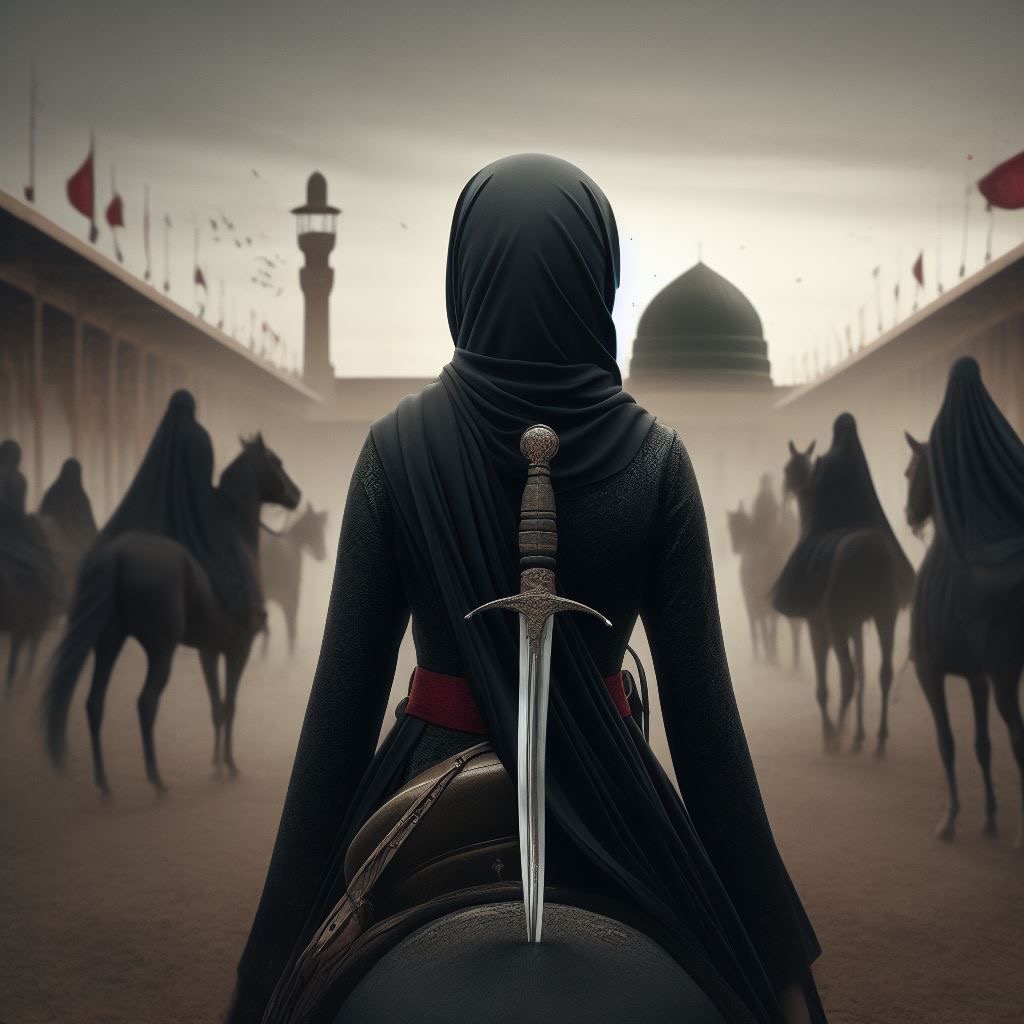The concept of women is a highly controversial topic, as other societies portray or consider women as “oppressed” in Islam. To rebuke these false ideologies, we shall delve deeper into some of the women companions of prophet Muhammad ﷺ who achieved immensely in various fields. We shall also delve into how these women companions played an equally crucial role as the male companions.
The achievements of the women companions in Islam:
The women companions of Prophet Muhammad ﷺ achieved immensely not only in the religious sector, but also in various other fields like medicine, nursing, court laws, politics, educations, fine arts, trade, commerce and many more. They were very pure, virtuous, courageous in taking part in war (Jihad), and devoted themselves in the peaceful propagation of Islam.
Women in the wars:
During the Battle of Uhud, when all the disbelievers attacked the prophet ﷺ, Umm ‘Ammarah (May Allah be pleased with her) courageously shielded him (ﷺ) with her body, and averted the enemies with her sword, bow and arrows. She additional bore the brunt attacks, when Qaniah approached the prophet ﷺ within a striking distance. Umm ‘Ammarah continued to attack the enemy with her sword, in spite of having got deep bruises in her shoulder. She got dozens of wounds and even lost an arm in an attempt of a courageous attack against Mussailamah Kaththab.
During the Battle of Ahzab (The battle of Trench), the women companion, Safiyyah (May Allah be pleased with her) handled the Jewish attack with her excellent military strategy and slewed one of the jews.
In the Battle of Hunain, Umm Salim (May Allah be pleased with her) courageously attacked the enemies with her sword. In the Battle of Yarmook, brilliant valour were displayed by Juwairiyah (May Allah be pleased with her), the ‘Mother of believers’, and among the women companions including Asma’ bint Abu Bakr, Umm Abban, Umm Hakeem, khawlah, Hind (May Allah be pleased with all of them). Asma bint Yazid courageously fought and killed about nine of the enemy soldiers. During the attack on Cyprus in the 28th year after Hijrah, Umm Haram (May Allah be pleased with her) bravely took part. Umm ‘Atiyyah (May Allah be pleased with her) took part in seven battles and also fought during the caliphate of ‘Umar Farooq (May Allah be pleased with him).
The women companions of prophet Muhammad ﷺ usually took part in the battles equally competent as men both on land and at sea. They also accompanied him ﷺ during the military expeditions. Besides courageously taking an active part in wars, the women companions also engaged in other services like providing medical aids to the soldiers, nursing the wounded, providing food and water for the wounded warriors, giving the soldiers arrows during the war, and would generally maintain the morale of the army. They also helped to transport the martyred and the wounded back to Madinah. The women and also the children assisted to burry the dead.
Propagation of Islam:
The women companions of prophet Muhammad ﷺ actively involved in spreading the teachings of Islam and through their Dawah, many of the disbelievers reverted to Islam. Umar bin Khattab (May Allah be pleased with him), who was to become one of the bravest and faithful companions of prophet Muhammad ﷺ, reverted to Islam through the dawah of his sister, Fatimah bint Khattab (May Allah be pleased with her). Umar bin Khattab (May Allah be pleased with him) was later known as, “the Commander of the Faithful (Al-Farooq).
Abu Talhah (May Allah be pleased with him) was influenced by the teachings of Umm Salim (May Allah be pleased with her), and it was Umm Hakim (May Allah be pleased with her), who had convinced her husband, Ikrimah to accept Islam. Umm Shareek Dosiah (May Allah be pleased with her) worked among the women of the Quraysh discreetly and prudently to spread the teachings of Islam.
Another crucial role of missionary work played by ‘Aaishah, the Mother of the Believers (May Allah be pleased with her), was to preserve the message of Islam in its original form without any deviation, modifications, impurities, innovations, and fabrications due to the chances of them being corrupted eventually by the cultural or traditional practices that were already prevalent in the society. ‘Aaishah and Umm Salmah (May Allah be pleased with them) were exceptional masters of the interpretation and commentary of Hadith due to their close association with the prophet ﷺ. ‘Aaishah (May Allah be pleased with her) narrated 2210 hadeeths and also brought unity among the Muslims when there were confusions and chaos, while Umm Salmah (May Allah be pleased with her) had narrated 378 hadiths.
Although women are not allowed to lead men in prayers, they can lead prayers in the congregation of women. Many of the women contemporaries of prophet Muhammad ﷺ like ‘Aaishah, Umm Salim, Umm Waraqah, and Sa’dah bint Qamamah (May Allah be pleased with all of them) led prayers among women. Umm Waraqah (May Allah be pleased with her) had in fact made her house into a place of prayer for the women, in which the Adhaan was given by a lady mu’adhdhin and Umm Waraqah (May Allah be pleased with her) played the role of Imaam and led prayers.


